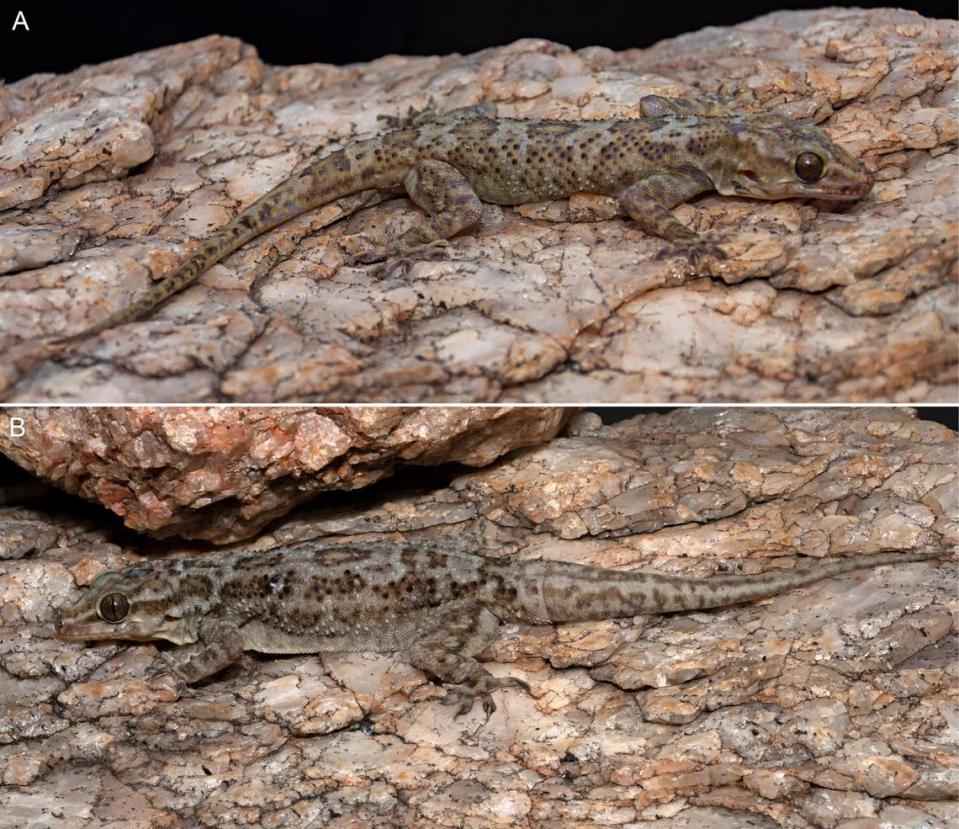Spiky creature lurking under boulders in dark India forest discovered as new species
Walking through boulders scattered around the hills of southern India, scientists scanned their surroundings. As dusk fell, they began to notice dozens of “large” creatures emerging from the rocks.
Looking closer at the animals, they made an exciting discovery: a new species.
Researchers set out to explore a southern portion of the Eastern Ghats mountain range, according to a study published May 23 in the journal Vertebrate Zoology. They’d seen reports of an unknown reptile living in the area and set out to find the animal.
Lurking under boulders, the lizards appeared only as the sky darkened, the study said. Researchers captured five animals and soon realized they’d discovered a new gecko species.
The new species was named Hemidactylus pakkamalaiensis, or the Pakkamalai rock gecko, after the hill where it was discovered, researchers said. The “large” gecko reaches about 8 inches in size, with females slightly smaller than males. It has a “dull-brown” coloring with darker brown bands or blotches across its back.
Photos show how well the Pakkamalai rock gecko blends in with the rocks. Spikes run along its sides, giving the lizard a bumpy texture. Its brown eyes appear iridescent and shiny.

The Pakkamalai rock gecko is a nocturnal, rock-dwelling lizard, the study said. The gecko inhabits granite boulders in a variety of forested or jungle habitats. It is “locally abundant” with researchers finding 56 Pakkamalai rock geckos in four days.
The new species was previously misidentified and grouped with another gecko species before it had been formally studied, researchers said.
The new gecko species was identified as morphologically and genetically distinct from other related geckos, the study said. Researchers identified it by the glands on its underside, spikes along its sides and scales along its back.
DNA analysis found the new species had between 5.6% and 10.3% genetic divergence from other known species, the study said.
Researchers noted the Pakkamalai hill and the surrounding Gingee Hills are “unique” in providing “a suitable micro-habitat for rock-dwelling geckos.” The surrounding area likely has more gecko species for researchers to discover.
The research team included Surya Narayanan, Peter Christopher, Kothandapani Raman, Nilanjan Mukherjee, Ponmudi Prabhu, Maniezhilan Lenin, Sivangnanaboopathidoss Vimalraj and V. Deepak.
Pakkamalai Hill in Viluppuram, Tamil Nadu, is about 1,400 miles southeast of New Delhi.
Creature with ‘translucent groin’ discovered in unexplored part of Amazon rainforest
Bumpy creature with countless arms scooped from sea — and discovered as new species
Scaly creature emerges from rocks in darkness. It turns out to be new species in India

